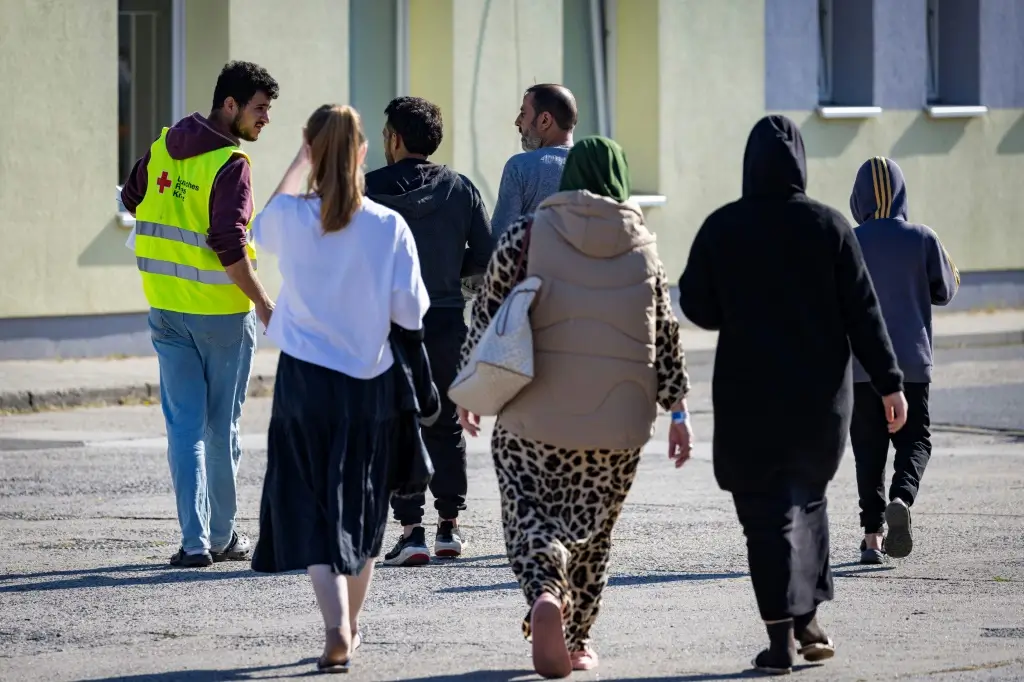
The number of asylum applications in Germany fell by almost half in the first six months of this year. A total of 65,495 asylum applications were submitted between January 1 and June 30, as reported by the newspaper "Welt am Sonntag" on Saturday, citing previously unpublished figures from the European Union Asylum Agency (EUAA). This is a decrease of 43 percent compared to the same period last year.
This means that for the first time in years, Germany is no longer the European leader in asylum applications for the first six months of a calendar year: 76,020 people applied for protection in Spain during this period, followed by 75,428 in France. Germany is in third place, followed by Italy with 62,534, Greece with 27,718 and Belgium with 17,285 asylum applications. Bringing up the rear are Hungary with 47 asylum applications, Slovakia with 84 and Lithuania with 152.
According to the figures, most asylum applicants in Germany came from Afghanistan (22 percent), Syria (20 percent) and Turkey (11 percent). 3.1 percent of applicants - and therefore the fifth largest group in Germany - came from Russia.
According to the EU report, a total of 388,299 people applied for asylum in the countries of the European Union plus Norway and Switzerland between the beginning of January and the end of June. This corresponds to a decrease of 23 percent compared to the first half of 2024. Most people seeking protection in the EU came from Venezuela (48,413), Afghanistan (41,127) and Syria (23,307). The number one destination country for Venezuelans is Spain, while Germany is the main destination country for people from Afghanistan and Syria.
The "Bild" newspaper reported that the number of initial applications for asylum in Germany in the first half of 2025 was only 61,300. In June, there were only just under 7,000 new asylum applications. This was 60 percent less than in the same month last year and 70 percent less than in June 2023, the lowest monthly figure since March 2013.
Federal Interior Minister Alexander Dobrindt (CSU) sees the new figures as confirmation of his migration policy. "These are clear successes of the migration turnaround. We are consistently pursuing the path of turning migration back on its head," he told the Bild newspaper.
Green parliamentary group leader Britta Haßelmann criticized the German government's migration policy. She accused Federal Chancellor Friedrich Merz (CDU) and Dobrindt of jeopardizing European cooperation by going it alone. “40 years after the Schengen Agreement, the growing together of Europe, Friedrich Merz is causing immense damage in Europe,” Haßelmann told the AFP news agency.
The background to this are the stationary controls at Germany's external borders as well as the rejections of asylum seekers at the borders ordered by Dobrindt. In response, Poland intends to introduce border controls from Monday.
“This must shake all Europeans to the core,” said Haßelmann. The victims of this policy of the black-red federal government are “not least the more than ten million people who live in the border regions”, especially commuters as well as business and trade.
At its parliamentary group conference, the AfD adopted a position paper calling for a general stop to “unauthorized entry” of asylum seekers. The AfD also wants to abolish the right to naturalization for migrants.
Migration expert and member of the European Parliament, Lena Düpont (CDU), attributed the decline in the number of asylum applications less to border controls than to other factors. "In addition to seasonal effects and increased cooperation between third countries and the EU border protection agency Frontex, the partnership agreements with important North African countries are a key reason for the decline in numbers," she told "WamS".